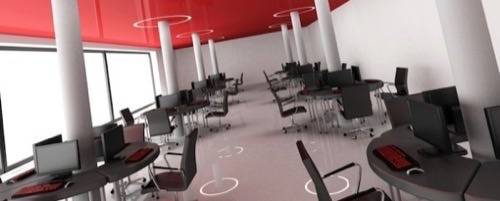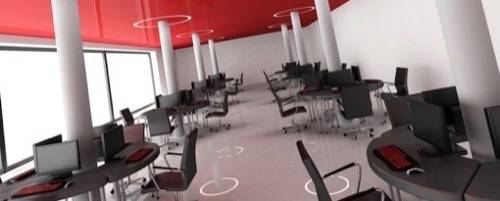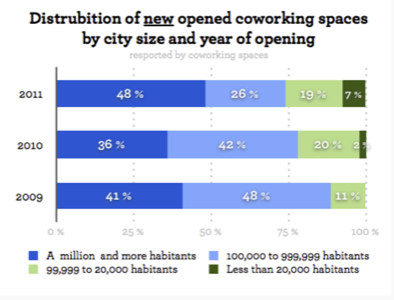
What’s less structured than a business incubator and more community-oriented than executive suites? For an increasing number of startups, the answer is co-working spaces – where entrepreneurs rent desks, office space and access to office amenities by the hour, day or month.

But how can you tell if a co-working space is the right solution for your company?
As the co-working trend spreads from big urban centers including San Francisco and New York, most major cities now have at least one co-working space… and that number is growing. According to the 2nd Annual Global Coworking Survey, 36% of all co-working spaces plan to open additional locations this year, and 85% expect membership to increase.

But just because there’s a co-working space near your company, that doesn’t necessarily mean it – or any such space – is the right fit for you. Consider these five fact factors before moving in:
1. What kind of people do you want to work with? Co-working spaces come in many flavors. Some cater to creative workers like writers or graphic designers; others focus on women business owners or entrepreneurs who need child care during working hours; still others attract software designers, game designers or other techies. You’ll be spending a fair amount of time among these people, so choose your co-workers carefully.
2. How many amenities do you require? Some niceties you can expect to find include coffee makers and refrigerators, access to office equipment such as printers and fax machines, storage space, open-plan seating areas and meeting rooms. If there are any factors that are especially important to you, ask about them. Also find out what hours you can access the facility and how far in advance you need to reserve meeting space.
3. What plan options are available, and how much do they cost? Most co-working spaces offer a menu of options, from “drop-in” hourly space rentals to part-time or full-time membership plans. If you have employees, ask about group plans and make sure the center can accommodate the size of your team. If possible, test out the space with drop-in rental before making a bigger commitment.
4. What’s the vibe? Visit the co-working space to get a sense of how friendly, collaborative, energetic or practical it is for your purposes. In general, co-working spaces are informal by nature; the ease of sharing and meeting new people is part of the charm. But you also need to make sure it’s not too noisy and hectic for you to focus (unless you’re the type who thrives in chaos).
5. What “extra perks” are available? Some co-working spaces are affiliated with startup accelerators, business incubators, local universities or other programs to help members’ businesses grow. Many sponsor events, gatherings or classes tailored around topics of interest to their members. This can make a big difference to some startups, but have no value for others.
What kinds of startups should use co-working spaces?
In general, co-working spaces work great for solo founders who want others to bounce ideas off of or to simply keep them from going stir crazy in a home office or the local Starbucks. They can also be a great place to network and meet potential partners, professional advisers or clients.
As your business grows and your team gets bigger, however, you may outgrow your co-working space.
Other warning signs a co-working space might not be right for you:
You need privacy to discuss sensitive issues or trade secrets you don’t want others to overhear. It’s hard to keep secrets when you’re sitting elbow-to-elbow with strangers. Some co-working spaces offer dedicated space with privacy for teams, but you’ll need to make sure this is available and appropriate for your needs.
You’re worried about competition. It’s great to learn from others in your industry, but not everyone is there just to help you. If you’re concerned competitors may steal your ideas or employees, a co-working space might not be right for you.
There are several resources to help you find co-working spaces in your area:
But the best approach may be to ask around to see what co-working spaces other startup entrepreneurs in your area use and recommend.
Lead image courtesy of Shutterstock.










